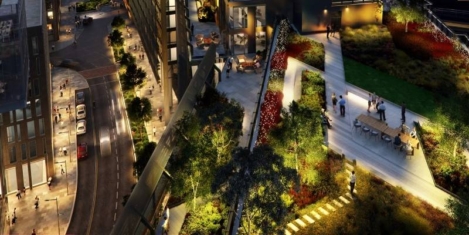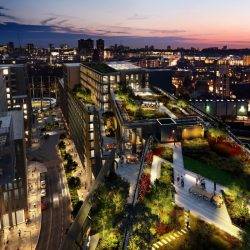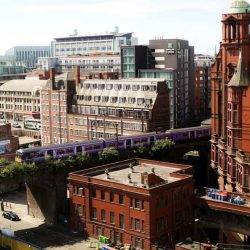May 23, 2019
Boosting low carbon building renovation across Europe
 Today, the World Green Building Council’s European network, in collaboration with eight cities and partners announced the launch of Build Upon, the next phase of what it claims is the world’s largest collaborative project on building renovation. With cities across the world declaring climate emergencies and climate action high up on the agenda for the European elections, this European Union (EU) funded project will empower cities across Europe to join forces with national governments and industry to decarbonise their existing building stock by 2050 and so increase the proportion of low carbon building across Europe. (more…)
Today, the World Green Building Council’s European network, in collaboration with eight cities and partners announced the launch of Build Upon, the next phase of what it claims is the world’s largest collaborative project on building renovation. With cities across the world declaring climate emergencies and climate action high up on the agenda for the European elections, this European Union (EU) funded project will empower cities across Europe to join forces with national governments and industry to decarbonise their existing building stock by 2050 and so increase the proportion of low carbon building across Europe. (more…)











 UK-based
UK-based 


 Many built environment businesses are adopting increasingly ambitious sustainability commitments reports the UK Green Building Council in its third annual report ‘Leading the Way’. This presents trends and analysis from research conducted as part of UKGBC’s annual Sustainability 360 Reviews, which look at sustainability trends and insights amongst UKGBC’s 50 industry-leading Gold Leaf member businesses.
Many built environment businesses are adopting increasingly ambitious sustainability commitments reports the UK Green Building Council in its third annual report ‘Leading the Way’. This presents trends and analysis from research conducted as part of UKGBC’s annual Sustainability 360 Reviews, which look at sustainability trends and insights amongst UKGBC’s 50 industry-leading Gold Leaf member businesses.






 A new task group spearheaded by the UK Green Building Council (UKGBC) being launched which will develop an industry-led definition for net zero carbon buildings. The task group brings together over thirty experts from across the building value chain and is being supported by 12 leading industry bodies. Following the recent IPCC report and the Paris Climate Agreement, worldwide attention has switched to achieving “net zero emissions” to escape the worst impacts of climate change. To answer this, a global campaign is being led by the World Green Building Council – calling for all new buildings to be net zero carbon in operation by 2030 and all existing buildings to achieve this standard by 2050. Its aim is to build industry consensus on a definition for net zero carbon buildings, which can then be used to advise project designs, planning requirements and building regulations.
A new task group spearheaded by the UK Green Building Council (UKGBC) being launched which will develop an industry-led definition for net zero carbon buildings. The task group brings together over thirty experts from across the building value chain and is being supported by 12 leading industry bodies. Following the recent IPCC report and the Paris Climate Agreement, worldwide attention has switched to achieving “net zero emissions” to escape the worst impacts of climate change. To answer this, a global campaign is being led by the World Green Building Council – calling for all new buildings to be net zero carbon in operation by 2030 and all existing buildings to achieve this standard by 2050. Its aim is to build industry consensus on a definition for net zero carbon buildings, which can then be used to advise project designs, planning requirements and building regulations.







January 24, 2019
Australian designers are fundamentally reshaping workplaces around the world
by Bronte Turner • Comment, Workplace design
(more…)